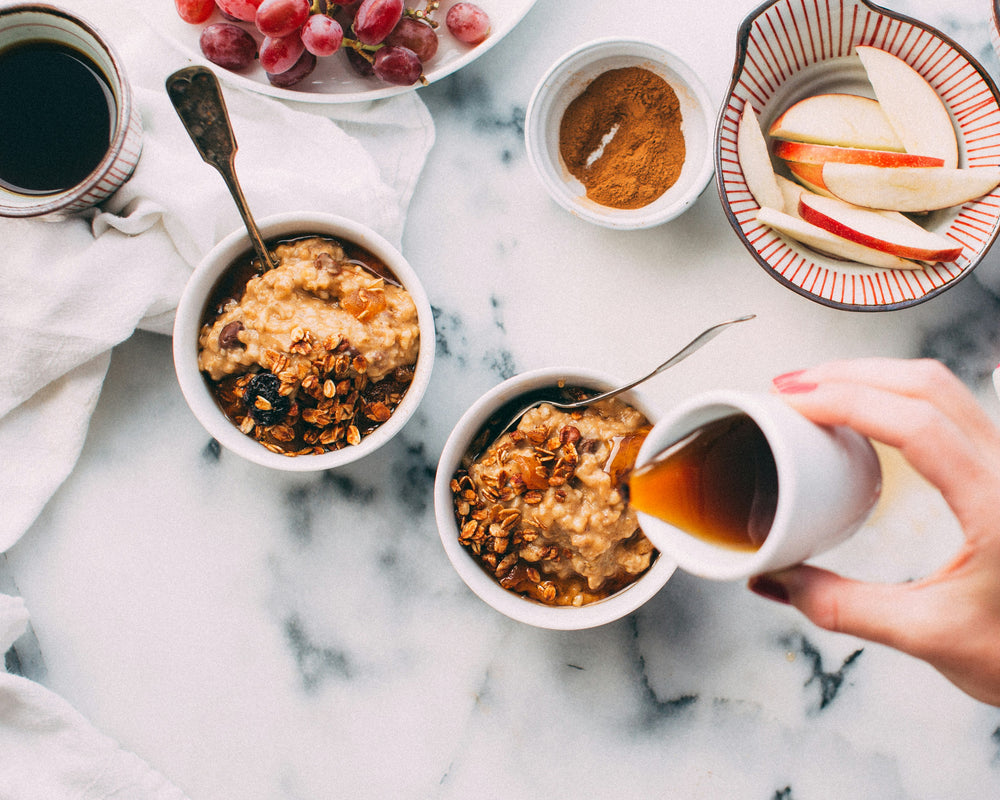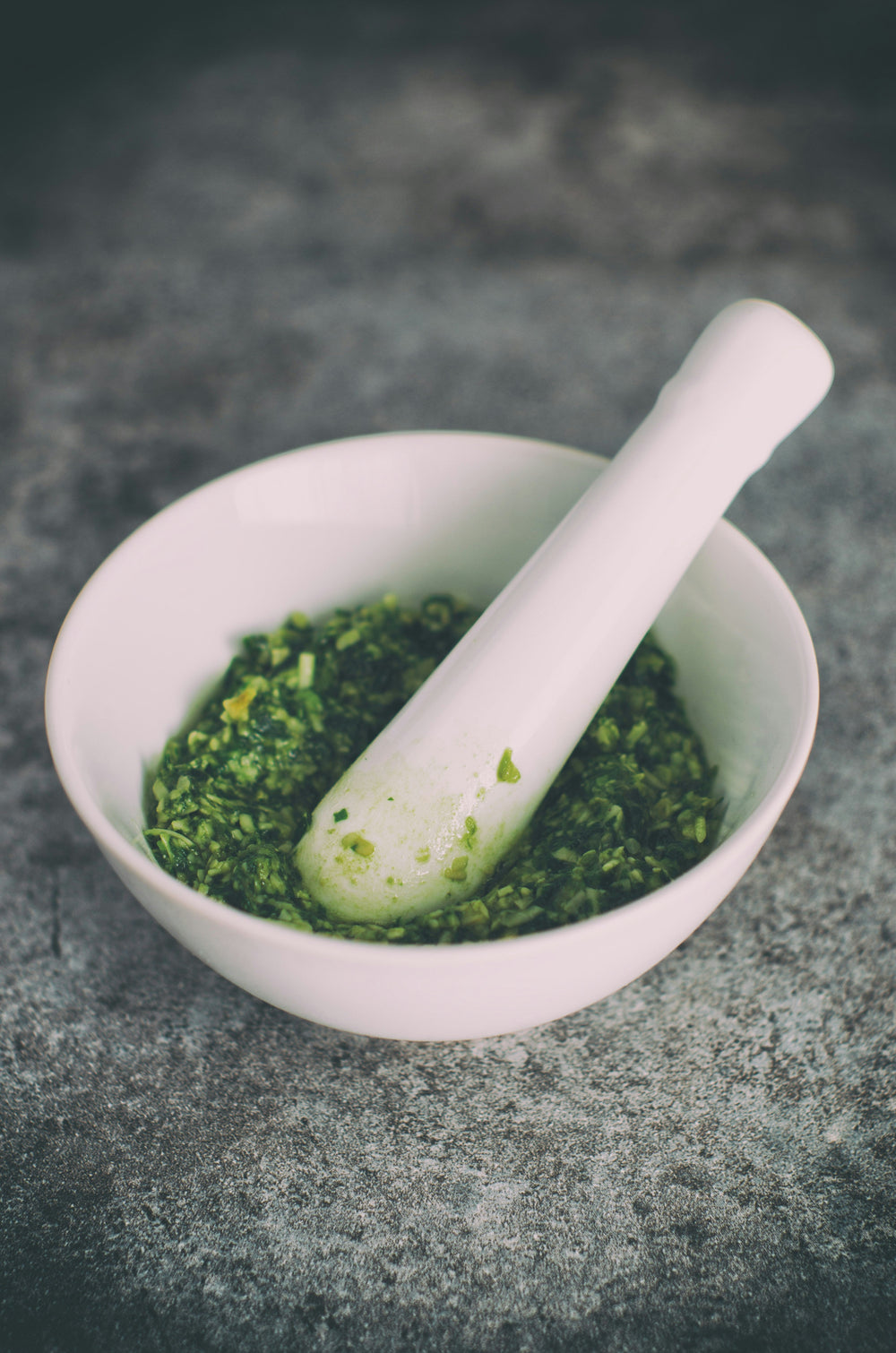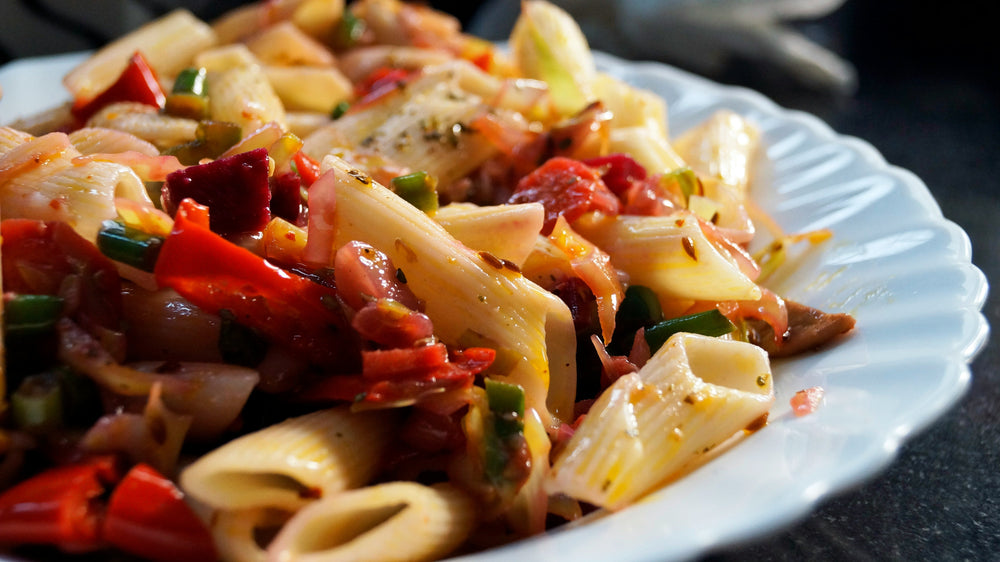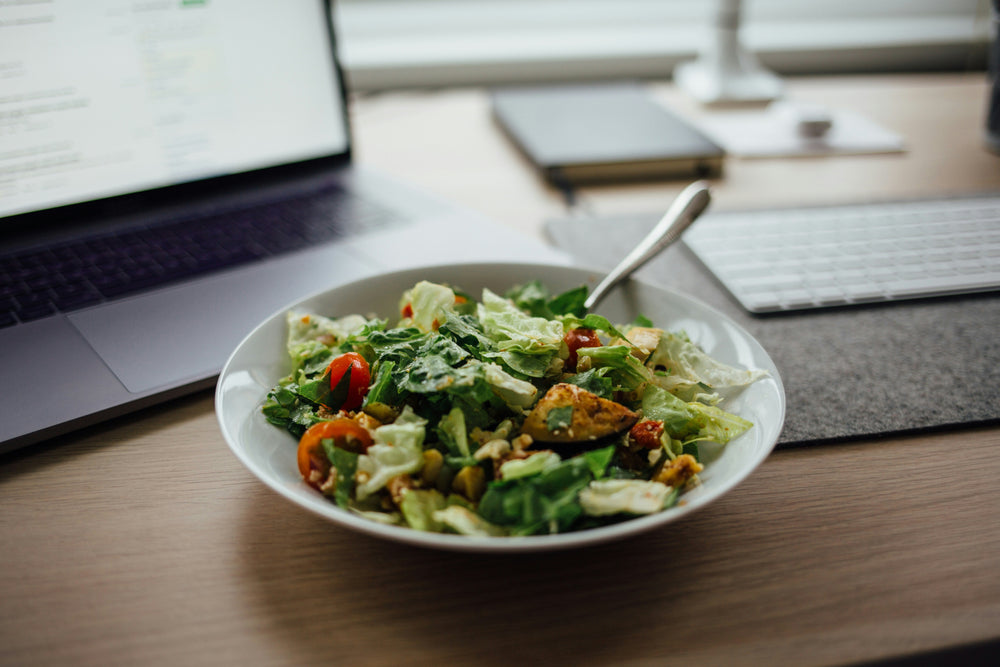This creamy green soup brings together broccoli, cauliflower, and kale for a delicious bowl that feels both comforting and energising. Finished with crispy chickpeas and toasted almonds, it is an easy way to enjoy a whole day’s worth of greens in one simple, nourishing meal.
can probiotics cause bloating?
Can Probiotics Cause Bloating? If you've recently started taking probiotics and noticed some bloating or gas, you're not alone. It’s a common concern, but before you jump to conclusions, let’s take a closer look at why this happens and why it might not be such as bad thing after all. Why Does Gas Happen When You Start Taking Probiotics? The process behind this is simple: probiotics help break down the food we eat, especially the fibres in plant-based foods. As they work, they produce gases like hydrogen, methane, and carbon dioxide, which are completely natural byproducts of this process. It’s similar to how our gut bacteria naturally ferment fibres and prebiotics (foods that feed the bacteria). While this is great for digestion, it can lead to temporary bloating or gas as your body adjusts. What’s Really Going On Inside Your Gut? When you start taking probiotics, certain strains of bacteria, like Lactobacillus plantarum and Bifidobacterium species, bring helpful enzymes into the mix. These enzymes support your gut by helping to digest things like prebiotics and complex carbohydrates. However, this new digestive activity can temporarily increase gas production as your gut gets used to these new ways of processing food. Additionally, when new probiotic bacteria move in, they can change the balance of your existing gut microbiome (the community of bacteria already living in your gut). This change can lead to some bacteria being reduced, which might cause the release of certain byproducts, like gas. It’s a natural part of improving your gut health, even though it might feel a bit uncomfortable at first. Is Gas After Taking Probiotics a Good Thing? It might sound strange, but experiencing some gas after starting probiotics can actually be a good sign. It’s a sign that the bacteria are active in your gut, breaking...

Can Probiotics Cause Bloating?
If you've recently started taking probiotics and noticed some bloating or gas, you're not alone. It’s a common concern, but before you jump to conclusions, let’s take a closer look at why this happens and why it might not be such as bad thing after all.
Why Does Gas Happen When You Start Taking Probiotics?
The process behind this is simple: probiotics help break down the food we eat, especially the fibres in plant-based foods. As they work, they produce gases like hydrogen, methane, and carbon dioxide, which are completely natural byproducts of this process. It’s similar to how our gut bacteria naturally ferment fibres and prebiotics (foods that feed the bacteria). While this is great for digestion, it can lead to temporary bloating or gas as your body adjusts.
What’s Really Going On Inside Your Gut?
When you start taking probiotics, certain strains of bacteria, like Lactobacillus plantarum and Bifidobacterium species, bring helpful enzymes into the mix. These enzymes support your gut by helping to digest things like prebiotics and complex carbohydrates. However, this new digestive activity can temporarily increase gas production as your gut gets used to these new ways of processing food.
Additionally, when new probiotic bacteria move in, they can change the balance of your existing gut microbiome (the community of bacteria already living in your gut). This change can lead to some bacteria being reduced, which might cause the release of certain byproducts, like gas. It’s a natural part of improving your gut health, even though it might feel a bit uncomfortable at first.
Is Gas After Taking Probiotics a Good Thing?
It might sound strange, but experiencing some gas after starting probiotics can actually be a good sign. It’s a sign that the bacteria are active in your gut, breaking down food and producing beneficial compounds like short-chain fatty acids (SCFAs). These SCFAs help support your gut barrier, boost immune function, and keep harmful bacteria in check. So, while the gas may be a little annoying, it’s a sign that your gut is working hard to get stronger.
Will Everyone Experience Gas?
Not everyone will experience bloating or gas when taking probiotics. However, a few factors can increase the likelihood of feeling gassy, such as the state of your current gut health and your diet. If your gut has been out of balance due to poor diet, stress, medications, or existing digestive conditions, you might feel more sensitive to changes when introducing probiotics. If you eat a lot of high-fibre foods like beans, whole grains, or certain vegetables, these foods are full of prebiotics, which feed your gut bacteria.
People who have had antibiotic treatment recently might experience more noticeable digestive shifts when starting probiotics, as their microbiome is still recovering. If this happens, give your body some time to adjust. If the symptoms persist, speak to a healthcare provider for further guidance.
Conclusion
Yes, probiotics can cause some temporary bloating or gas, but it’s usually a sign that your gut is adjusting and getting stronger. It’s just part of the process of bringing new, beneficial bacteria into your digestive system. If you find it uncomfortable, try making small adjustments to your diet or how you introduce probiotics into your routine. With time, your gut will adapt, and you’ll start seeing the benefits of a healthier, more balanced microbiome.
References
Lacy, B. E., Cangemi, D., & Vazquez-Roque, M. (2021). Management of chronic abdominal distension and bloating. Clinical Gastroenterology and Hepatology, 19(2), 219–231.e1. https://doi.org/10.1016/j.cgh.2020.03.056
Serra, J. (2022). Management of bloating. Neurogastroenterology and Motility, 34(3), e14333. https://doi.org/10.1111/nmo.14333
lifestyle. gut health recipes.
ready in 10 minutes
herb-whipped cottage cheese chicken bagels.
These basil whipped cottage cheese protein bagels make a fresh, high-protein breakfast or lunch, combining creamy herb-blended cottage cheese with juicy chicken, rocket, and tomatoes. They’re quick to assemble, packed with flavour, and perfect for a nourishing breakfast or light lunch.
ready in 10 minutes
kiwi chocolate protein chia pots.
These Kiwi Chocolate Protein Chia Pots make an ideal high-fibre, high-protein breakfast that keeps you full and energised all morning. They’re quick to prepare, easy to store, and perfect for a healthy grab-and-go option.
ready in 15 minutes
spiced apple porridge.
This spiced apple and pumpkin seed porridge is a warming, high-fibre breakfast that’s perfect for cosy mornings. Made with creamy oats, gently caramelised apples and a crunchy pumpkin seed topping, it’s ready in just 15 minutes and serves one.
ready in 50 minutes
prep-ahead baked blueberry oats.
These prep-ahead oven-baked oats with blueberries and bananas are rich in protein and fibre, making them a nourishing, gut-friendly breakfast to enjoy all week.
ready in 15 minutes
spicy green eggs with feta.
These spicy green eggs with feta are a quick, protein-rich recipe packed with gut-friendly ingredients like spinach, courgette, and spring onion. Baked in the oven or air fryer, they’re simple to make, full of flavour, and support digestion with a balance of fibre, protein, and healthy fats. Perfect for breakfast, brunch, or a light meal, this vibrant dish proves that nourishing your gut can be both delicious and easy.
ready in 10 minutes
egg wrap with pesto.
Bright, fresh, and ready in just 10 minutes, this flavour-packed wrap serves one and is ideal for breakfast, lunch, or any time you’re after something simple yet filling.
ready in 10 minutes
peach cobbler overnight oats.
Start your day with a gut-friendly twist on a classic dessert. The peach cobbler overnight oats serve 2–3 and takes just 10 minutes to prepare the night before. Packed with fibre, flavour and feel-good ingredients, it’s the perfect make-ahead option for busy mornings or a nourishing snack you can enjoy any time of day.
ready in 15 minutes
smoky egg salad bagel crunch.
This smoky harissa egg bagel is the perfect 15-minute meal. Made with creamy Greek yoghurt, tangy pickles, and a hint of spice, it’s a high-protein twist on classic egg salad that delivers on both taste and texture. Ideal for busy days, this easy bagel recipe makes lunch feel gourmet without the effort.
ready in 20 minutes
chewy breakfast matcha protein cookies.
Soft, satisfying, and subtly sweet—these breakfast cookies are made to fuel your morning the right way. With fibre-rich oats, plant-based protein, and antioxidant-packed matcha, they’re a gut-friendly grab-and-go option that doesn’t compromise on flavour or function.
ready in 15 minutes
lemon & poppy seed pancakes.
Emily's light, gut-friendly crêpes are the perfect balance of fibre, protein, and healthy fats to support digestion and keep you feeling great.
ready in 10 minutes
carrot cake breakfast oats.
Start your day with a delicious and nutritious breakfast option - Carrot Cake Oats. Filled with fibre diversity to promote healthy digestion.










































